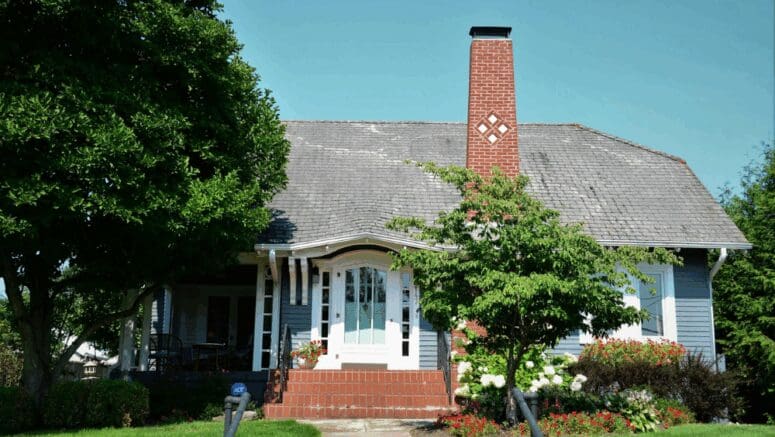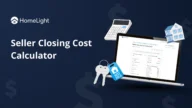Who Pays Realtor Fees in Virginia?
- Published on
- 8 min read
-
 Richard Haddad Executive EditorClose
Richard Haddad Executive EditorClose Richard Haddad Executive Editor
Richard Haddad Executive EditorRichard Haddad is the executive editor of HomeLight.com. He works with an experienced content team that oversees the company’s blog featuring in-depth articles about the home buying and selling process, homeownership news, home care and design tips, and related real estate trends. Previously, he served as an editor and content producer for World Company, Gannett, and Western News & Info, where he also served as news director and director of internet operations.
If you’re getting ready to sell your house in Old Dominion, it’s likely you’re looking at what other nearby homes sold for, comparing list prices, and calculating your net proceeds. If this is your first time selling or it’s been a few years, you might be wondering, Who pays Realtor fees in Virginia?
This question has become more common in Virginia and across the country since new real estate commission rules took effect after a landmark National Association of Realtors (NAR) court settlement.
Under the new rules that started August 17, 2024, home sellers are no longer automatically expected to pay the buyer’s agent fees — an industry practice that had been standard for nearly a century. But has the NAR settlement changed the way Realtor fees are handled in Virginia?
In this post, you’ll learn who pays Realtor fees in Virginia, how agent commissions work today, and when it might make sense to cover your buyer’s agent fee. We’ll also provide a Virginia agent commission calculator to help you decide what Realtor costs you’re willing to pay.
Who pays Realtor fees in Virginia?
Some news outlets and market analysts predicted that the NAR settlement would shift cost responsibility, pressuring buyers to pay their own agent fees. But that U-turn hasn’t happened — in Virginia or anywhere in the U.S. According to a recent nationwide HomeLight survey, 92% of top agents say sellers are still paying the buyer’s Realtor fees.
Why are home sellers still covering this now-optional expense? Agents say it’s a simple matter of common-sense marketing. Higher mortgage rates and affordability hurdles have impacted Virginia’s housing landscape. In a slow market, offering to pay the buyer’s Realtor fees and giving up other concessions is an effective strategy to attract offers and close a home sale.
So, despite the NAR rule changes, most Virginia sellers continue to offer to cover the buyer’s agent commission. This is especially true in housing markets where:
- Buyer demand has dropped due to high interest rates
- Many buyers are already stretched by down payments and closing costs
- Refusing to cover this expense could limit your buyer pool
Based on feedback from top-rated Virginia agents, the takeaway is clear: If you want to attract more buyers and sell faster, offering to pay the buyer’s Realtor fees remains a smart strategy.
Virginia real estate agent commission calculator
So, what will the two Realtor fees cost you in the Mother of States? Or what might just the listing agent fee look like if you don’t offer to pay the buyer’s Realtor fees in Virginia?
To see ballpark estimates, use our Virginia Real Estate Commission Calculator below. Compare different scenarios using the state’s average agent commission rates, which combined equal about 5.69% of your home’s listing price. You can also adjust the percentages up or down to see what Realtor fee rate you might want to negotiate.
Are Virginia sellers required to pay the buyer’s agent?
There is no law or mandate that requires a Virginia home seller to pay the buyer’s agent compensation. However, as HomeLight’s nationwide agent survey revealed, most sellers still offer to cover this cost for their buyers. Here’s a look at why you might decide to pay both Realtor fees in Virginia:
- You’ll get more offers: Most buyers in Virginia work with real estate agents. If you don’t offer to cover their Realtor fees, these buyers may pass over your listing or factor the commission costs into a lower offer price.
- You’ll wield more negotiating power: Covering the buyer’s agent commission will help your home stand out, especially in cities where there’s more competition. Attracting multiple bids can lead to a bidding war and negotiation muscle.
- You can achieve more certainty: In a 2025 HomeLight survey, agents agreed that offering to cover the buyer’s Realtor fees and other incentives is often necessary to close a sale in today’s uncertain market.
At first glance, skipping the buyer’s agent fee may seem like a money-saver, but it can hurt your home’s visibility, days on market, and final sale price.
Can you negotiate Realtor fees in Virginia?
Yes. In Virginia, agent compensation has always been negotiable, even before the NAR settlement and rule changes. Here are some options you might consider:
- Negotiate a lower commission percentage: Some Virginia agents may accept a reduced rate, especially for upper-end homes or in more competitive markets like Richmond and Alexandria.
- Shift the commission split: You can propose a different commission percentage split or decide to only cover your own listing agent’s fee and offer a different concession to buyers. (More on concessions below.)
- Tie commission to performance: In this structure, you agree to pay a higher rate if your home sells above a target price, and a lower rate if it sells below.
- Use a flat-fee listing service: Some Virginia brokerages offer à la carte services at a flat rate, though these can carry risks, such as lower sale proceeds, a bumpy journey, or more work on your part. A flat-fee service might be a better fit for more experienced home sellers.
As you consider these options, keep in mind that the right Realtor partner can often net you higher proceeds at the close of the sale, even if their commissions cost more than a Virginia discount broker or flat-fee company.
With expert marketing, pricing, and negotiating strategies, a top Virginia agent can often more than cover their fees, all while giving you a smoother, faster selling experience.
Additional free tools to help you plan your Virginia home sale:
- Home Value Estimator
- Net Proceeds Calculator
- Best Time to Sell Calculator
- Recently Sold Homes (Virginia)
What other concessions can help a Virginia home sell?
If you decide not to pay the buyer’s Realtor fees or you want a different way to help your listing stand out, offering traditional concessions can sweeten the pot for hesitant buyers in Virginia. Some alternate incentives include:
- Closing cost credits: Covering part of the buyer’s closing costs, such as loan, title, or attorney fees, can help reduce affordability hurdles.
- Repair credits: Instead of paying to fix everything your buyer has asked, offer them a repair credit. This allows your buyer to make repairs on their own schedule and make custom adjustments along the way.
- Home warranty: Offering a one-year home warranty can give your buyer additional peace of mind about the purchase, especially if you are selling an older Virginia home.
- Interest rate buydowns: This concession involves funding a temporary interest rate reduction for your buyer. It lowers the buyer’s mortgage rate and expenses for the first 12 months. This can be an attractive concession if a buyer starts to get cold feet over their monthly payment.
According to HomeLight’s 2025 agent survey, the top three seller concessions in the current housing market are:
- Repair credits (52%)
- Closing cost help (50%)
- Interest rate buydowns (21%)
These incentives and credits, combined with an offer to pay the buyer’s Realtor fees, can help your Virginia home sell faster.
In Virginia and the South Atlantic region, 87% of surveyed agents reported an increase in price cuts in their markets over the past 12 months, indicating that Virginia sellers need to be prepared to offer buyer incentives and negotiate to close a home sale.
Why a top Virginia agent can net you more proceeds
While it might be tempting to focus on lowering your Realtor fees, your proceeds actually depend on a combination of selling costs and offer price.
HomeLight data shows that the top 5% of agents sell homes for up to 10% more than average agents. On a $280,000 home, that could mean an additional $28,000. In Virginia, a top-rated local agent can help you:
- Understand what’s customary for the area’s buyer’s Realtor fees
- Weigh what fee rate offers might work best for your unique situation
- Evaluate purchase offers and concessions based on local demand
- Guide you through Virginia market trends and seller disclosure laws
Whether you decide to offer to pay the buyer’s agent compensation, the right Virginia listing agent can help you determine your home’s fair market value and what level of proceeds you can expect.
Commission rules change, but strategy always matters
The agent commission rules may have changed, but Virginia’s housing market fundamentals remain the same: homebuyers want professional representation, and home sellers want attractive offers.
Your best commission strategy starts with hiring a top agent who can position your property to sell for the highest possible price — and with the terms that fit your goals.
HomeLight’s free Agent Match tool analyzes 28 million transactions and thousands of customer reviews to connect you with top Virginia agents based on your needs. Whether you decide to pay the buyer’s agent commission or offer other seller concessions, the goal is the same — a profitable and successful home sale.
HomeLight is here to help. For more expert tips, insights, and tools, visit our Home Seller Resource Center.
Header Image Source: (Roger Starnes Sr / Unsplash)


